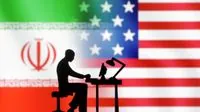UK Trade Minister Warns of China's Economic Tactics at WTO Meeting
At a recent WTO gathering, Britain's trade representative highlighted China's unfair trade practices and economic coercion. The article explores the global impact and calls for reduced dependency on China.

The biennial World Trade Organization (WTO) meeting, attended by 164 nations, recently concluded with intense discussions on global trade rules. As Britain's representative, I advocated for free trade as a means to elevate worldwide living standards.
Throughout the week, a recurring theme emerged: the economic threat posed by China. Manufacturing economies expressed concerns about the oversupply of inexpensive Chinese goods, particularly in the automotive sector. China's state-subsidized firms are planning to produce 70 million electric vehicles by 2030, far exceeding the projected global demand of 44 million units. This overproduction strategy aims to dominate markets and potentially eliminate competition from other nations' industries.

China's economic practices extend beyond mere competitiveness. The Five Eyes intelligence alliance has confirmed instances of intellectual property theft, giving China an unfair technical advantage. This economic clout has evolved into economic coercion, a tactic that particularly threatens Taiwan.
"China's economic practices pose a significant threat to global fair trade and intellectual property rights."
China's aggressive actions in the South China Sea, including confrontations with Philippine and Vietnamese vessels, further exemplify its expansionist ambitions. To counter this, I worked with G7 Trade Ministers in Japan last year to address such intimidation tactics.
The UK has taken steps to strengthen ties with Taiwan through an Enhanced Trade Partnership Agreement, the first of its kind between Taiwan and a European nation. Additionally, Britain's inclusion in the Trans-Pacific Partnership (CPTPP), a £12 trillion free trade bloc comprising 12 countries, serves as a crucial platform for like-minded allies to combat economic coercion.
However, many nations, including the UK, continue to develop dependencies on China, posing risks to both economic stability and freedom. To address this, I propose implementing annual assessments of trade dependency and its impact on national security.
The pursuit of net zero carbon emissions by 2050 has inadvertently exacerbated this dependency. China's production capacity for solar modules is set to exceed global demand threefold in the coming years. Alarmingly, 98% of solar panels in the UK are sourced from China, with over 40% of the polysilicon used in their production coming from Xinjiang province, where concerns of forced labor and human rights violations persist.
China's dominance extends to rare earth minerals and battery cell production, critical components for modern technology and electric vehicles. This control over essential resources further solidifies China's economic leverage.
To mitigate these risks, the UK must diversify its supply chains and reduce dependence on China. This includes supporting domestic industries, such as the recent £500 million investment in the Port Talbot steelworks, one of Europe's largest steel production facilities.
In conclusion, the UK needs a clear strategy to defend its national interests and counter China's influence. By fostering strong domestic growth and prosperity, Britain can confidently address these challenges and secure its economic future.


































